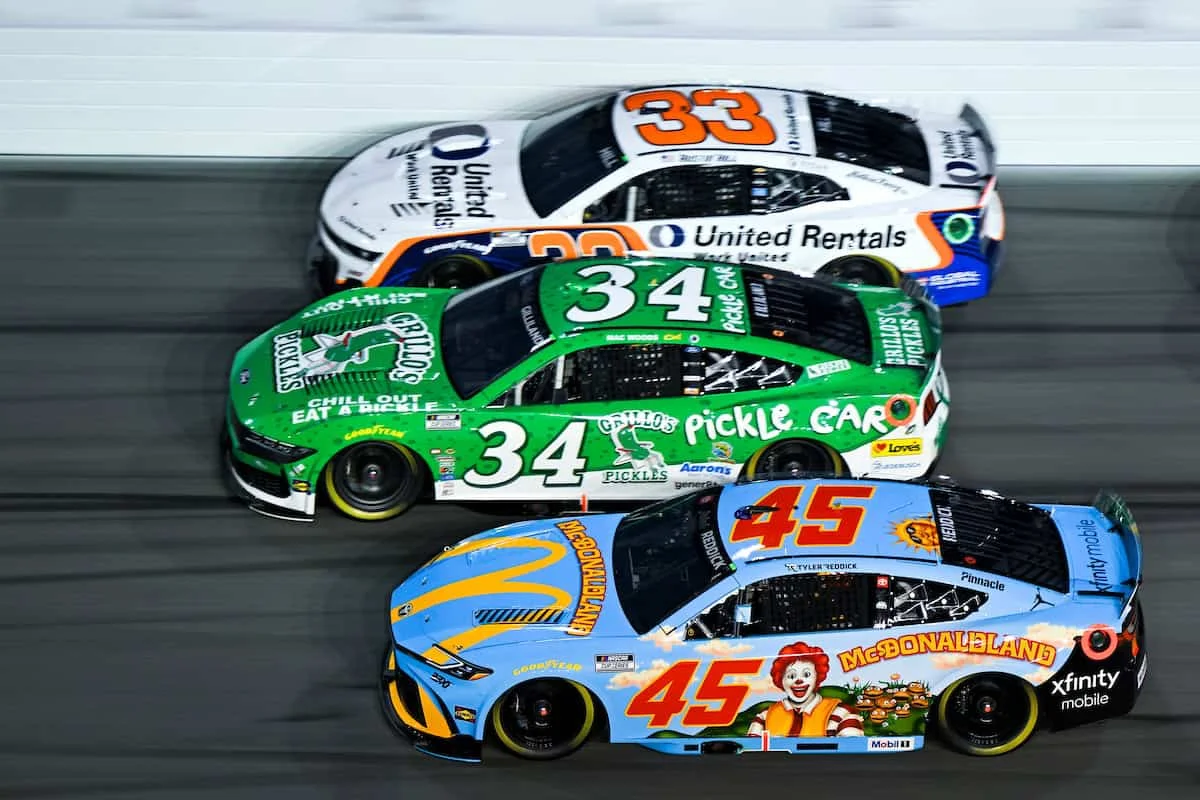On Wednesday, U.S. District Court Judge Kenneth D. Bell rejected a preliminary injunction in the Front Row Motorsports charter lawsuit, meaning that 23XI Racing and Front Row Motorsports will remain without charter status for the remainder of this NASCAR Cup Series season. The ruling, delivered in a federal court proceeding, impacts how these teams will compete and operate for the rest of the year.
Teams to Compete Without Charters for Remainder of 2024 Season
Both 23XI Racing and Front Row Motorsports must proceed as open teams, not chartered ones, for the rest of the season. This designation means they will receive lower earnings compared to chartered teams; however, due to a recent change by NASCAR, they are guaranteed entry into all remaining races. Drivers affected include Tyler Reddick and Bubba Wallace from 23XI Racing, and Riley Herbst, Todd Gilliland, Zane Smith, and Noah Gragson across both organizations, who are now assured of participating in every event this year despite lacking charter status.
Federal Ruling Hinges on Lack of Irreparable Harm
One crucial element for granting a preliminary injunction is the requirement for plaintiffs to prove they would face irreparable harm without the court’s intervention. Judge Bell emphasized this point, noting that NASCAR’s recent decision to secure entry for these teams into all remaining Cup Series races eliminated the risk of them missing any events.

In late July, NASCAR formally changed its rules, guaranteeing entry for the six contested teams through the season’s end. Following a contentious court hearing on August 29, NASCAR submitted a document promising not to issue, transfer, or lease the disputed charters during this period and through the pending trial. Despite these assurances, attorneys for the teams maintained that lacking charter rights was insufficient protection, raising concerns about the risk of sponsor losses and potential breach-of-contract claims from their drivers who are regarded as irreplaceable.
As stated in their recent court documents, the teams argued they would
suffer irreparable harm if they are not granted charter rights for the remainder of this season because of the risk of breach claims from their irreplaceable drivers and loss of sponsors in the absence of charter rights.
—Plaintiffs
Judge Bell’s Rationale in Denying Injunction
Judge Bell highlighted NASCAR’s recent modifications to the Open team rules, which safeguard these teams’ ability to compete through the rest of the Cup Series season. He also addressed the financial and business uncertainty generated by not having charters, stating that losses related to fixed payouts or future relationships with drivers and sponsors could be recovered through damages if the plaintiffs ultimately succeed at trial. Regarding the longer-term impacts, such as what may happen for the 2026 racing season, the judge noted those issues remain unresolved until after the trial concludes.
Judge Bell’s official writing included:
First, NASCAR has changed its Open
racing rules in a way that guarantees that Plaintiffs will be able to fully participate in each of the remaining Cup Series races. … the loss of the fixed Charter payouts and the uncertainty of ongoing relationships with drivers and sponsors can either be compensated with money damages at trial or is simply inherent in the risks associated with the lawsuit.
The future of charter allocation also featured in arguments, as the teams expressed fears that the transfer or sale of the charter spots they previously used could threaten their business viability under NASCAR’s current agreement structure. Judge Bell acknowledged these concerns but indicated that NASCAR’s agreement to limit new charter issuance upholds the current balance. The organization retains the power to create up to forty Charter Members, and the temporary addition of Charters 37 through 40 does not, in his view, irreparably injure the plaintiffs.
In words from the judge:
What will happen for the 2026 racing season will remain unsettled for everyone involved in the NASCAR Cup Series until after trial. Therefore, there is no irreparable harm with respect to the loss of Charter rights
for the remainder of the 2025 Cup Series.
He further wrote,
With respect to the sale / transfer / etc. of additional Charters pending a ruling on the merits, Plaintiffs (23XI Racing and Front Row Motorsports) claim that the transfer of the Charter spots Plaintiffs had been using prior to this dispute would destroy their businesses
under the current Charter Agreement regime. This is a fair and significant fear; however, NASCAR has agreed that it will in effect maintain the status quo with respect to those earlier Charter spots by limiting the number of new Charters issued to four.
To summarize his assessment, Judge Bell added,
In other words, so long as the disputed Charters are available for the Court to potentially use as part of the final relief granted to Plaintiffs if they are successful at trial, then Plaintiffs are not irreparably harmed and no preliminary injunction is necessary or, indeed, permitted.
Next Steps: Waiting for December’s Jury Trial
The Front Row Motorsports charter lawsuit now advances to a jury trial, scheduled to begin December 1, unless the two sides reach a settlement beforehand. Until then, plaintiffs including Bubba Wallace, Tyler Reddick, Riley Herbst, Todd Gilliland, Zane Smith, and Noah Gragson, will continue competing as open teams, and the long-term future of NASCAR’s charter system remains uncertain for all parties. The outcome of this case could prove significant for team business models, NASCAR’s charter distribution, and the relationship between sponsors, organizations, and drivers in coming seasons.
